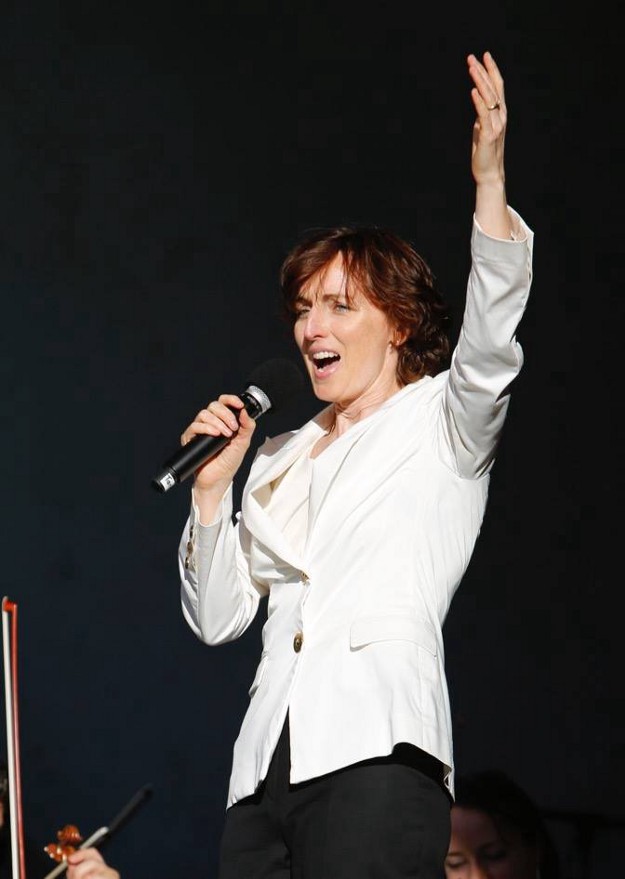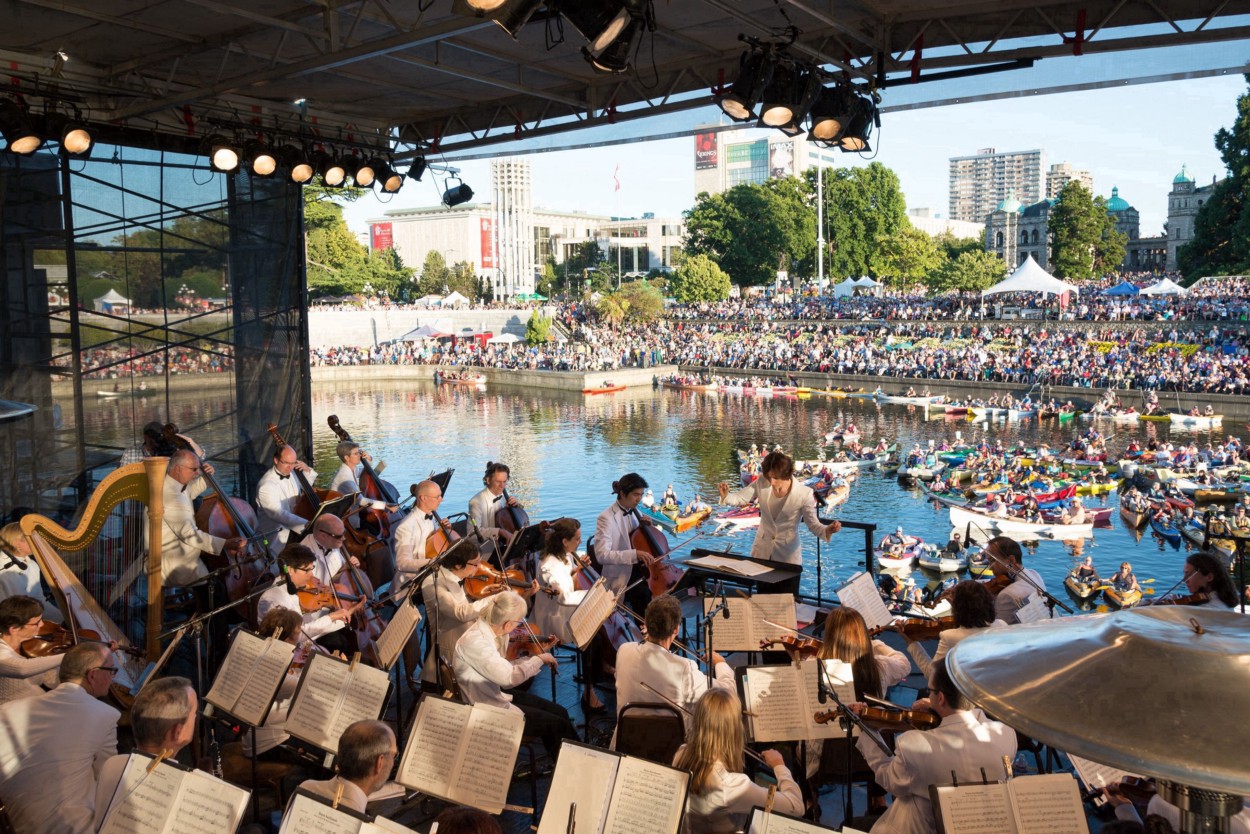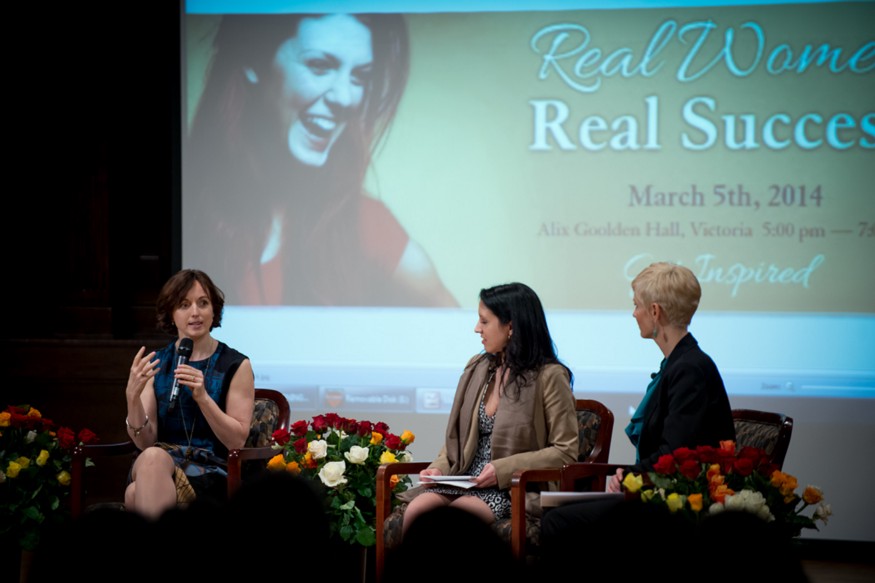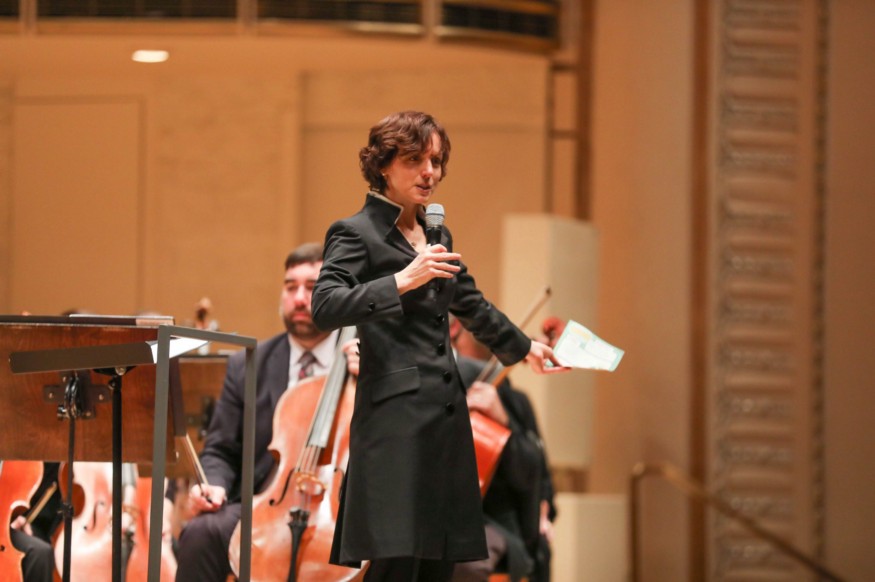When I signed up for a life of conducting orchestras, I didn’t realize I’d also need to learn how to handle enormous audiences
When I signed up for a life of conducting orchestras, I was only thinking about conducting music. No one told me that I would be talking to audiences all of the time, and I didn’t expect my first concert as Music Director of the Victoria Symphony to be in front of 40,000 people.

Photo credit: Victor Chong
As a somewhat shy person, I wasn’t originally comfortable talking to thousands of people throughout my career — telling stories, making jokes, and connecting people to music. But I learned along the way, and my desire to share a message that I am passionate about is the inspiration that has given me courage.
Speaking to an audience like this is as much about creating energy, emotion, and atmosphere as it is about content. It’s about matching the mood of a moment and building a language that connects people to each other and to the empowering feeling of being a part of something extraordinary.
I have to be spontaneous, free, and yet deeply prepared (so that I seem spontaneous even if, inside, I’m not). I’ve learned from my experiences about how an audience will react, what to expect, and how to predict what will work and what won’t.
Sharing music in a large crowd is a paradox. It brings an enormous group together, creating an overwhelming feeling that we are a part of a community that is unified and full of belonging, while at the same time, music reaches each individual as if it is speaking directly to them on an emotional and personal level.

Photo credit: Victor Chong/Victoria Symphony
Speeches can be the same way. Forty thousand people in a harbour can unite into one spirit through the universal way that you bring them together. In that moment when you speak about something to which everyone can relate— whether it’s human perseverance, beating all the odds, tragic love, passion, or hope — your words build a bridge and connect people to each other in a transformative, collective human moment.
The collective atmosphere of a speech is to be inside the experience. When you are speaking to an audience, you are harnessing their energy and connecting it together as part of the experience. You have the ability to see, feel, manipulate, and interact with this energy.
No one can get this experience from watching you on a screen or reading the information you give in a book. Your speech has a purpose, it has a journey, and it has power.
It’s an Experience First
No matter what kind of speech you are giving, or what kind of communication style you use, first, you understand that you are creating an experience. The experience of being inside a speech is similar to being inside a music concert, and as such, I’ve learned how to give speeches from the music I conduct. All great speeches have:
- energy
- emotion
- structure
- intellectual stimulation and inspiration
- tension and release
- the element of surprise
- high points and low points
When you talk to an audience, you change them. You change how your audience feels and thinks about their ideas, work, and life experiences. You are impacting their personal possibilities.
Purpose
Undoubtedly, the most important thing about your speech is the information that you are giving — the new ideas, the research, the information that will change people for what they now come to understand through your teaching.
As a conductor in the community, I’m asked to speak to many different kinds of audiences and situations. Often I’m speaking to organizations about business, leadership, community, education, or the arts. Sometimes I’m delivering a keynote address or giving an awards ceremony speech.

Photo courtesy of the author.
No matter where I’m speaking, I’m representing the role I have as a conductor and a leader in the community. In my case, this has taught me that people want to be inspired by the symbolism of what I represent — they want to be moved by what I say because they are moved by music and that’s what I represent to them.
They want to learn something and they want to make a connection to a unique world that they admire but might not know all that much about.
So, what is it that you represent?
What is the purpose behind you being the person at the front of the room? What is the essence of what you symbolize for your audience? And what is the emotional, human core to what you bring that will make this speech an experience for them?
For instance, if you represent marketing, what is it that you symbolize when you are asked to speak? Is it an understanding, an innovation, a path forward, a new way, an exciting new product?
The essence of what you symbolize is an important part of the core of your speech. Every speech is an experience — an experience of shared, emotional, human energy.
Performance
Think about the difference between being in a room listening to jazz, experiencing the musicians first-hand as they explore, react, interact, and synergize with the music — and listening to a perfectly edited recording of that music. What’s the difference? They are both great, but one, with all of its mistakes, spontaneity, and realness is much better.
A perfect speech isn’t great. If you memorize it, but it’s too perfect, it isn’t real.
Make spontaneous mistakes and congratulate yourself for them. Your speech must be prepared and skillful, but also real. It’s more impactful when it isn’t perfect because then the audience knows that they are a part of a real experience, rather than the soundboard for something prepared.
Your words can be prepared, your skills can be practised and honed (and need to be) — but your speech has to be in the now. You need to live it, be it, and flow with it in real-time. It’s a performance. You are a performer.
Energy
Often we can focus on the information and content of a speech, but let’s focus now on energy. Everything we say leads to something else, building up into a frenzy, or descending into contemplation. Energy is a subliminal yet powerful part of the success of any speech.
When I am thinking about a speech I am thinking a lot about energy. Music has taught me the emotional side of communicating and moving an entire audience into a peak climax, or into a hushed silence.
I’ve experienced this in concerts of thousands of swarming, restless children. Utter chaos down to hearing a pin drop. Just like that. It’s in the sound of the voice you use. It’s in a shocking word. It’s in a motion. It’s in a surprising hushed tone.

Photo credit: Todd Rosenberg/Chicago Symphony
The energy you give out becomes a reflection back at you. In this way, you can manipulate the reflection and see your reflection — which is your audience. They will mirror you. If you are interesting, they will be interested. If you are lit up, they will light up. If you reflect and weep — so will they. Energy is what everyone “hears” more than words.
You might think that if you use silence or a hushed sort of energy that it will be covered up. The opposite is true. Nothing is more powerful than to command the energy of 40,000 people into silence. But timing, in this case, is critical. You have to understand the energy. In the case of my concert, the nightfall makes the change that I need — nostalgia and stillness prevail as the evening wears on. Silence can be the most powerful emotional experience of all.
The Music of Your Speech
You can create emotional highs and lows in a speech if you think of it like music. If it was a song, what would it sound like? What kind of mood would it be, and what kind of story would it tell? What is the music of your speech?
If you think of your speech as a song, where is the repeating chorus and what is that repeating message that you keep coming back to again and again?
Songs use repetition to their advantage. They also center on a key with harmonies that get along (although sometimes they surprise us), and they are simple enough that every person in the audience can connect to them and remember them — even get fond of them and repeat them later (on their own).
Structure
In a speech, there’s a front, a middle, and an end. There are sections throughout that each have their own meaning and purpose.
The structure helps us with memory and delivery, and it helps the audience to remember and assimilate what we say. The structure of your speech punctuates the energy as well as the content. What kind of energy will you start with? What kind of energy will you finish with? What is the structure of the information so that it follows a journey? Pay attention to the energy inside each of the sections. Some will build up and lead to the next, and some will relax.
Structure is mapped out in a great speech just as it is in music. Great music has tension and release, timing for key moments, explosive surprises, and always, there is rhythm.
Building a Bridge
When we connect to our audiences, we’re connecting our ideas to theirs and building a bridge. Our ideas will be reframed by the audience into connections that they apply to their own lives, thoughts, and experiences.
You are also building a bridge between all of those strangers in the audience to each other. They are all experiencing change and something meaningful, together, at the same time. The experience of sharing builds the bridge.

Photo credit: Hugo Wong/Victoria Symphony Splash
When you are done your speech, everyone will be connected, in that moment, in that room, in that harbour — to each other.
When I am speaking, I am connecting the music to my audience, and the audience to the music. I am connecting people of the present to people of the past. I am connecting one feeling to another, building a sculpture of energy, weaving a tapestry of humanness. Your speech is a creation of connections.
Preparation
The speech written ahead, researched, and prepared is one part of this creation. You think about your audience as you write it, you think about your message. Every speech has a different requirement. If you are giving a TED Talk, a presidential inaugural speech, a lecture, or connecting to people in a concert you will have to prepare and deliver in different ways.
If you must memorize your speech, it has to be fully automatized. This means that you have practised so much that it is automatic in your brain. High-level musicians and athletes are experts at automaticity. Concert soloists practise a concerto until it is effortless in their brains and fingers — they have studied it from every possible angle so that no aspect of the music will surprise them in the moment. When they’ve reached this state, they are ready for performance.
Similarly, if you have to memorize, not only do you need to know the material, but you have to be able to step into your actor self — put on the energy, persona, life, and emotion that will create the feeling that this speech is “present” in the moment — a true performance. If you have to look into your head to retrieve anything when you are on stage, you will not succeed at building the bridge and creating the energy.
My own personal favourite speaking style is to have the ideas and the structure memorized while leaving some room on the details for the “performance” itself. I’ve done my research, planned my strategy, know what information I want to convey. I’ve structured it clearly in my brain and memorized whatever is critical to have word-for-word (a quote for instance). And then the final 20% I like to leave up to the moment. The ideas are there. The exact sentences are not.
Trust
We are all creative beings who can transcend our normal skills when we are highly focused and engaged in a moment. When you stand in front of an audience and are truly sharing with them — if it’s coming from your present, focused commitment to share something you are passionate about in that moment — you will be surprised that new creative ideas might stimulate and flash in your mind when you need them. Your brain will not let you down. Of course, this style takes practise and trust.
Trust takes practise. Practise will enable trust.
Memory
There are many memory techniques. First, it is about discipline and doing the work. Take the time, practise over and over. Don’t leave memory to the last minute.
Some things that I think really help me:
- Structure is the key to memory. Know your sections and where each one is going. Have a shortlist of either opening sentences or topic keywords to stimulate your security in memorizing as you go through each section.
- Move when you are memorizing. Walk around the room. Have motion. Somehow this connects to your speaking brain and helps with memory too. Speak out loud as you practise. Visualize, move, act, speak, expend your energy.
- Choose the times when you are nervous to practise. As you lead up to a speech, you will have these moments. Wait for them and harness them.
- When you practise, you will find new ideas popping into your head as you continue to cycle through your material. Write these insights down and make them a part of your creativity.
Video Credit: Roll Focus Productions/Victoria Symphony
At the end of this Symphony Splash concert, the tradition is always to perform Tchaikovsky’s 1812 Overture. Cannons go off across the water, carillon bells ring in the harbour, blasts of the fireworks light up the sky. Water laps up against the stillness and connects each person to the experience. I am but a storyteller that prepares, connects, and contrasts the experiences of the night.
Musicians have taught me about speaking because I’ve seen how they inspire people with their skills, expression, courage, and virtuosity — they are a symbol for human endeavour, human perseverance, and human performance.
I would never have asked to deliver speeches and would never have considered myself potentially skilled at it. But, for me personally, the reason I became good at it is because of one important key thing: No matter how I felt, no matter what my level of confidence, no matter whether I wanted to or didn’t want to — I had one thing that I believed in, one thing that I was passionate about, and I focused on that.
I wanted to connect people to music. So, I did.
When we speak we have the potential to create a performance that makes an impactful change. We are building a bridge and connecting ideas and people together. We can inspire growth, understanding, and empowerment.
You have something you want to say, and you have a reason for why you think it is important and meaningful. This will serve you and be your focus and inspiration. Think about your message and be inside it.
The next time that you give a speech to 40, 4,000, or 40,000 people — remember to sing a song in your head, and tell your story. Your words will be there for you.

0 Comments